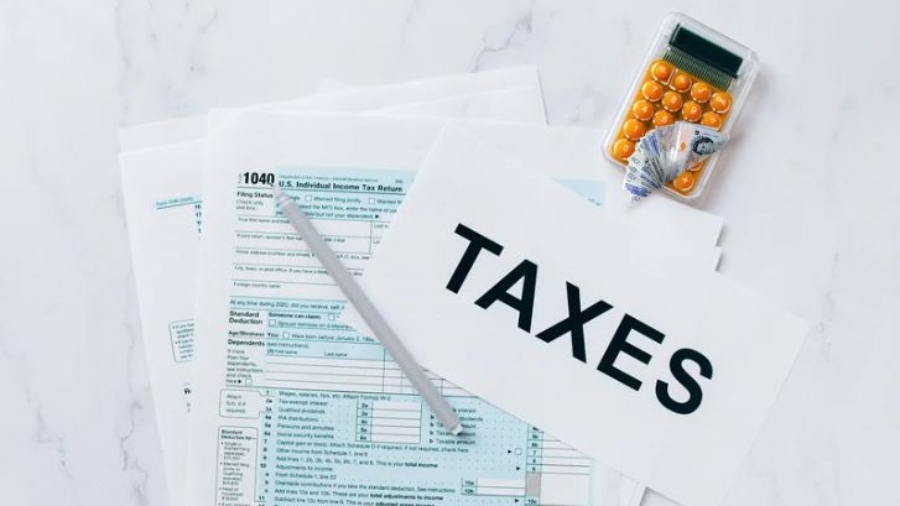As the end of tax year draws near in the UK, it’s important to start preparing in advance to ensure you stay ahead of the game.
Whether you’re a self-employed individual or an employee, there are several things you can do to ensure that you’re ready for the upcoming tax season and don’t get caught off guard. In this article, we’ll provide you with some helpful tips and expert advice on how to prepare for the end of the tax year 2022/2023 in the UK.
What are the End-of-year Tax dates in the UK?
When you see the phrase end of tax year, it’s probably referring to the personal tax year which occurs between April 6- April 5th the following year.
Business owners often start off as sole traders or partners in a partnership. Their tax status will be classified as self- employed. With the end of the tax year approaching, notice will be sent requiring you to file an income tax Self-Assessment tax return for that particular year.
The deadlines for these are:
-
-
- To file a paper return – October 31st
- To file an online return – January 31st
-
Eventually, it would be sensible to start running your businesses as a limited company. By doing this, you can create a separate legal ‘person’ that is taxed separately from yourself and any co- workers.
What about Corporation Tax?
There are a couple more dates you need to know with Corporation Tax. The tax year for Corporation Tax runs from 1st April- March 31st the following year. It is also known as the ‘fiscal year’ or ‘financial year’.
If you are the director of a company, the end of the personal tax year is still important, particularly if a section of your pay packet consists of the dividends from the company, which are liable for income tax. All directors need to complete a personal tax return annually.
How can you best prepare yourself for the tax year?
Preparing for the end of year tax return should be an ongoing process rather than a last-minute job.
Many people find it daunting to navigate the complexities of the tax system, particularly with changing tax laws and regulations. However, with the right planning and organization, you can make the process less stressful.
Let’s explore some of the best ways to prepare yourself for the tax year in the UK, from keeping accurate records to understanding the latest tax rules and regulations.
- Review your Income and Expenses
The first step in preparing for the end of the tax year is to review your income and expenses for the year. This will give you an idea of how much you’ve earned and spent throughout the year, and will help you to determine whether you need to make any additional payments towards your tax bill.
If you’re self-employed, you should review all of your business income and expenses, including any receipts and invoices. Make sure that all of your expenses are properly recorded and that you have proof of all of your income.
If you’re an employee, you should review your payslips and check that your tax code is correct. This will help you to ensure that you’ve paid the correct amount of tax throughout the year.
- Make any necessary Pension Contributions
If you’re self-employed, you may be able to make contributions to a personal pension plan in order to reduce your tax bill. This can be a great way to save for your retirement while also reducing your tax liability.
If you’re an employee, you may be enrolled in a workplace pension scheme. If you’re not already contributing to the scheme, it’s a good idea to start doing so before the end of the tax year in order to reduce your tax bill.
- Claim any Allowable Expenses
If you’re self-employed, you can claim a wide range of expenses against your income in order to reduce your tax bill. Allowable expenses can include things like office equipment, travel expenses, and even the cost of running your home if you work from home.
If you’re an employee, you may be able to claim certain work-related expenses, such as the cost of professional subscriptions or the cost of using your own vehicle for work-related travel.
- Check your Tax Code
Your tax code is used by your employer or pension provider to calculate how much tax should be deducted from your income. It’s important to ensure that your tax code is correct in order to avoid overpaying or underpaying your tax.
If you think that your tax code is incorrect, you should contact HMRC to have it corrected. This can be done online or by phone, and will help to ensure that you’re paying the correct amount of tax.
- Make sure you’re registered for Self-Assessment
If you’re self-employed or have other sources of income that are not taxed at source, you’ll need to register for self-assessment in order to file your tax return. If you’re not already registered, you should do so as soon as possible in order to avoid any penalties for late registration.
- Keep accurate Records
Whether you’re self-employed or an employee, it’s important to keep accurate records of your income and expenses. This will help you to ensure that you’re paying the correct amount of tax, and will also make it easier to complete your tax return at the end of the year.
If you’re self-employed, you should keep a record of all of your income and expenses, including receipts and invoices. You should also keep a record of any personal income, such as income from savings or investments.
- Know your Deadlines
6th April 2023, should be the first day of the new 2022-23 tax year.
Depending on what has been agreed in the Budget, new tax rates and allowances for 2022-23 will come into force from this date, so make sure you know if anything has changed.
If you have all of the information you need, you could file your 2022-23 tax return from this date. Below are a few helpful dates you should keep in mind.
31 July 2023: second payment on account due
Self-employed workers who pay tax through payment on account will have to make their second payment by midnight on 31 July.
The amount you pay is an estimate based on your earnings in 2021-22. If you still owe tax after this has been paid, a further ‘balancing payment’ may be due on 31 January 2024.
5 October 2023: register for self-assessment
If you’ve never submitted a self-assessment tax return before, you must register by 5 October 2023 in order to submit for the 2022-23 tax year.
This will allow you to get your Unique Taxpayer Reference (UTR) number and activation code in time, which you need to file your first return.
Ways in which you can submit your 2022-23 tax return.
If you’ve never submitted a tax return before, you’ll need to register with HMRC. You can do this online.
Once you’ve done that, you can choose from two ways to submit your tax return – by filling out the paper tax return and posting it to HMRC, or doing it online on the HMRC website.
Alternatively, you can use our help at AccNet; a personalized service that offers jargon-free, tax solutions.
Need help preparing for the 2022/23 Tax season?
The earlier you complete and file your tax return, the sooner you’ll be able to stop worrying about it and get on with running your business. But work pressure can mean your tax return gets left to the last minute – adding to stress levels and leaving little time to anticipate tax bills.
At AccNet, we work exclusively with businesses like yours, and we take responsibility for ensuring your tax return is completed accurately and in plenty of time.
As transactions become more complex with the growth of your business, having the right accountancy advice can help you save in the long run. Contact our team at AccNet today and avail the help of our expert team to navigate the complicated web of tax rules.



